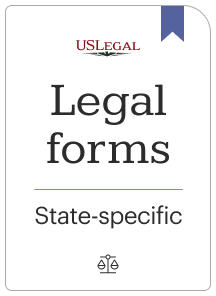

An affidavit is statement of facts which is sworn to (or affirmed) before an officer who has authority to administer an oath (e.g. a notary public). The person making the signed statement (affiant) takes an oath that the contents are, to the best of their knowledge, true. It is also signed by a notary or some other judicial officer that can administer oaths, affirming that the person signing the affidavit was under oath when doing so. The West Virginia Affidavit of Residency is a legal document used to establish an individual's residency in the state of West Virginia. It is a notarized statement that verifies an individual's residential address within the state for various purposes such as voter registration, obtaining in-state tuition, or qualifying for certain government benefits. When completing a West Virginia Affidavit of Residency, it is important to include accurate and up-to-date information. The document typically requires the individual's full name, current residential address, and length of time they have resided at that address. Additional details may be required depending on the specific purpose of the affidavit. There are several types of West Virginia Affidavit of Residency that serve different purposes: 1. West Virginia Voter Registration Affidavit of Residency: This document is used to establish residency in order to register to vote in West Virginia elections. It requires the individual's date of birth, voter registration number (if applicable), and the date they moved to the state. 2. West Virginia In-State Tuition Affidavit of Residency: This affidavit is required by colleges and universities in West Virginia for students seeking to qualify for in-state tuition rates. It typically requires the individual's date of birth, social security number, and the date they established residency in the state. 3. West Virginia Government Benefits Affidavit of Residency: When applying for certain government benefits in West Virginia, such as Medicaid or welfare, individuals may need to provide an Affidavit of Residency. This document verifies their eligibility by confirming their residential address within the state. To ensure the West Virginia Affidavit of Residency is legally binding, it must be notarized by a licensed notary public. The individual signing the affidavit must do so under oath, acknowledging that the information provided is true and accurate to the best of their knowledge. In case of any fraudulent information, they may be subject to legal consequences. In conclusion, the West Virginia Affidavit of Residency is a crucial document used to establish an individual's residency in the state for multiple purposes. Whether it's for voter registration, in-state tuition, or government benefits, accurately completing and notarizing this affidavit can significantly impact an individual's eligibility and access to various opportunities within the state.
The West Virginia Affidavit of Residency is a legal document used to establish an individual's residency in the state of West Virginia. It is a notarized statement that verifies an individual's residential address within the state for various purposes such as voter registration, obtaining in-state tuition, or qualifying for certain government benefits. When completing a West Virginia Affidavit of Residency, it is important to include accurate and up-to-date information. The document typically requires the individual's full name, current residential address, and length of time they have resided at that address. Additional details may be required depending on the specific purpose of the affidavit. There are several types of West Virginia Affidavit of Residency that serve different purposes: 1. West Virginia Voter Registration Affidavit of Residency: This document is used to establish residency in order to register to vote in West Virginia elections. It requires the individual's date of birth, voter registration number (if applicable), and the date they moved to the state. 2. West Virginia In-State Tuition Affidavit of Residency: This affidavit is required by colleges and universities in West Virginia for students seeking to qualify for in-state tuition rates. It typically requires the individual's date of birth, social security number, and the date they established residency in the state. 3. West Virginia Government Benefits Affidavit of Residency: When applying for certain government benefits in West Virginia, such as Medicaid or welfare, individuals may need to provide an Affidavit of Residency. This document verifies their eligibility by confirming their residential address within the state. To ensure the West Virginia Affidavit of Residency is legally binding, it must be notarized by a licensed notary public. The individual signing the affidavit must do so under oath, acknowledging that the information provided is true and accurate to the best of their knowledge. In case of any fraudulent information, they may be subject to legal consequences. In conclusion, the West Virginia Affidavit of Residency is a crucial document used to establish an individual's residency in the state for multiple purposes. Whether it's for voter registration, in-state tuition, or government benefits, accurately completing and notarizing this affidavit can significantly impact an individual's eligibility and access to various opportunities within the state.